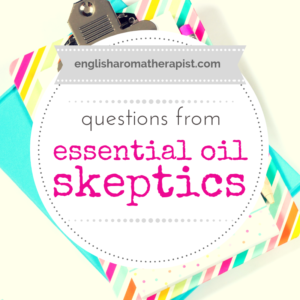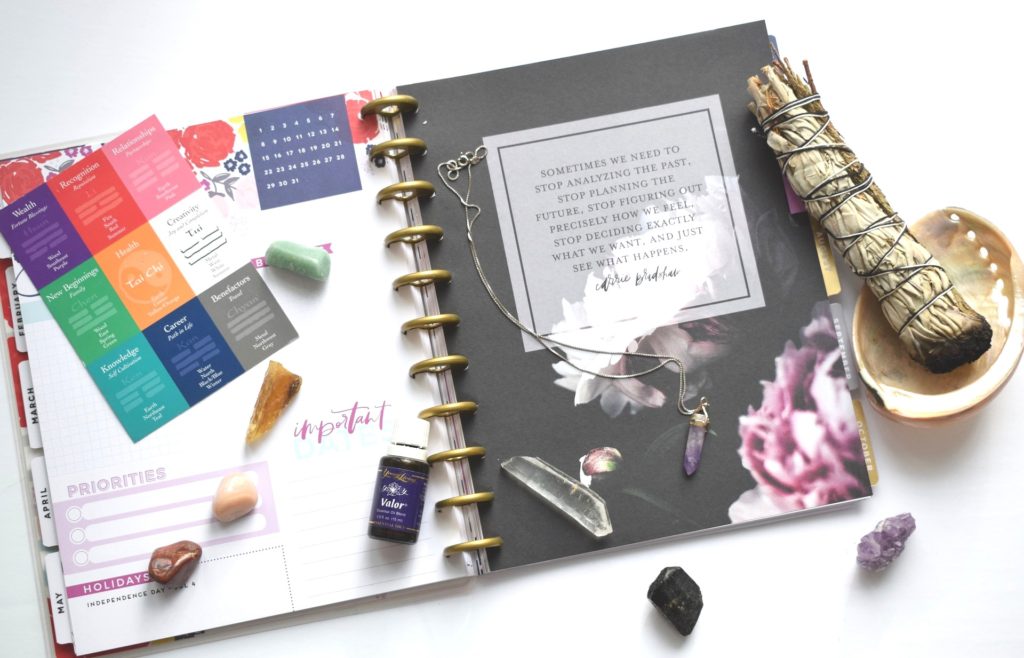Essential Oil Skeptics

Let’s face it, at some point you’ll come up against an aromatherapy skeptic.
Whether it’s your partner, friend or work colleague, you’ll inevitably find yourself in a situation where you need to stand up for essential oils!
Now, I’m a firm believer in “each to their own”, and I’m certainly not suggesting you jump on a soapbox and start preaching.
That said, it’s good to have a few handy facts up your sleeve for those times when people like to fire questions at you. Think of it like an “elevator pitch” – a quick, concise answer when someone puts you on the spot!
So, to avoid those annoying mind-blank moments, here’s a quick rundown of some of the most common questions you’ll get asked:

“What ARE essential oils?”
Essential oils are concentrated extracts from plants. They are called essential oils because they contain the “essence” of the plant.
“But how do essential oils WORK?”
When essential oils are inhaled, they are detected by olfactory receptors which send a message directly to the brain. Our olfactory system is closely linked to the limbic system of the brain, which is to do with our emotions and memories. This is why the slightest whiff of something can instantly trigger a vivid emotional reaction or memory associated with that scent. So smelling an essential oil can cause a psychological response – such as helping you fall asleep or feel relaxed. Inhaling can even help to reduce the perception of pain.
When essential oils are applied to the skin, they are absorbed into the body. If you doubt the effectiveness of skin absorption, consider that doctors commonly prescribe nicotine patches, birth control patches and HRT patches. (FYI you’ll also benefit from inhaling the essential oils as you massage them into your skin)
“But WHY do essential oils work?”
It’s all about the chemical composition. The chemical constituents of an essential oil determine its properties, its scent, and how it affects us (yes, essential oils DO contain chemicals!)
Oils with similar chemical constituents may have similar properties. For example, linalyl acetate is a chemical that’s known to have sedative properties. This explains why essential oils with a high proportion of linalyl acetate (such as lavender) are so relaxing.
Tea tree oil contains a chemical called terpinen-4-ol, which has proven antifungal and antibacterial properties – this is why it can be useful for acne. Peppermint contains menthol, which explains its cooling sensation. German Chamomile contains chamazulene, a proven anti-inflammatory.
Studying the chemistry of essential oils helps us to understand how they work, so we can select suitable oils to use.
“Is there any scientific evidence?”
Absolutely! Essential oil research is being carried out all the time. You don’t always get to hear about it, as the studies tend to be fairly small. Because much medical research is sponsored by pharmaceutical companies, it can be difficult to obtain funding for research into essential oils, as they can’t easily be patented into a profitable product.
However, the amount of essential oil research is growing steadily. A quick search on PubMed reveals over 9000 results for the term “essential oil”.
For specific examples, check out this list of 100 scientific studies about essential oils.
“Isn’t it just the placebo effect?”
It is impossible to separate the placebo effect from ANY form of treatment. Did you know that many painkillers and antidepressants are thought to work on a placebo basis? In fact, a 2013 study found that 97% of GPs in the UK had prescribed some form of placebo.
So it’s possible that the placebo effect is partly responsible for the benefits you get from essential oils. But scientific studies prove that aromatherapy is much more than just a placebo. Essential oils are made from chemical constituents that produce known psychological AND physical effects.
“If they worked, wouldn’t doctors prescribe them?”
.
The good news is that awareness of complementary therapies is growing all the time, and it’s now more widely accessible to people than ever before. In fact, the NHS now incorporates aromatherapy into some maternity services and cancer centres.
But, in a 10-minute Dr’s appointment, it’s a lot cheaper and easier for GPs to print out a drug prescription than it is to look into alternative options. Doctors are trained to prescribe drugs and medicines, they are not experts in holistic therapies. Luckily, things are slowly starting to change, but it won’t happen overnight.
There’s a growing trend towards drug-free health, which could eventually lead to a more holistic approach to medicine. The medical industry is realising that over-prescribing drugs is NOT the only solution, and could actually be a ticking time bomb. Alternative therapies are – albeit slowly – becoming more mainstream. Recently, we’ve seen some encouraging reports about initiatives to prescribe spending time in nature, gardening therapy and physical exercise rather than medications.
Cynics of natural medicine might be interested to know that a quarter of all modern medicines actually originate from plants. For thousands of years, people used willow bark as a painkiller before one of its ingredients was synthesised into aspirin, now one of the most widely used drugs in the world. Interestingly, out of 121 cancer drugs used worldwide, 90 are derived from plants. Scientists can isolate the key components of natural medicines and replicate them in a lab to create synthetic versions – BUT a synthetic replication will never be the same as the natural source.
So, why are natural remedies not as mainstream as drugs? Because they’re not as profitable! They are subject to natural variations of climate and unpredictable harvests. From a commercial point of view, it’s far better to create a synthetic version and sell it as a drug.
Further Reading
If you enjoyed this article, you might also find the following posts useful:
Anti-depressants: The ONLY answer?
Follow me on...
Share this on...
